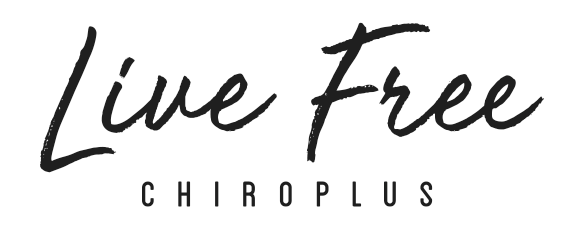It’s not a diet. It’s nutrition principles.
Humans have never been more divided. I’m not talking about politics or race, but about what we think we are supposed to eat. When you look at comments on any nutrition social media post or blog, you will think the person sharing the message was advocating for cannibalism or something. When it comes to our thoughts on nutrition we protect them, like they are some kind of religion. Human beings are the only animal on the face of the planet that can become confused by what they are supposed to eat. Imagine two zebras arguing at a watering hole. “We should be eating more grass!” “GRASS? You idiot, we need to eat the leaves off the bushes!” That is just absurd. Zebras would never do that; that must be why they don’t get ulcers.
Crystal and I are often asked what our diet plan is or what nutrition protocol we believe is best. It is a hard thing to answer in a quick sentence. You see, we don’t follow “x” diet or believe everyone should follow “y” plan. We just have a way of eating that fits our lifestyle, but that may not work for some other people. There is a wide spectrum of diet plans that range from vegan, vegetarian and pescatarian, to Mediterranean, paleo, primal, keto and even carnivore. With each one you can find research both pros and cons of each. And your certain to find zealots that believe their way is the only way. The brilliant Dr. Amy Galpin has said, “There are few principles, but many methods.” The truth is, each one of these diets are just a method, the principles you use with them will determine if they are successful or not. I’m going to do my best to give you the principles we follow and apply no matter what method we currently choose to use.
The first principle we use is what I like to call the “Unprocessed Diet”. Your food should spoil if you don’t eat it. Unless you are an astronaut going into outer space, or some kind of sailor going on a long voyage, you do not need your food to last forever on the shelf. If your goal is to be healthy, you need to eat real food no matter what method you choose. I could eat a whole package of cookies, and just because that could be classified as vegan or vegetarian, doesn’t mean I’ll get any health benefits from it. Likewise, if I decide to do keto, but I am eating fake meat patties from fast food restaurants and ultra-processed individually wrapped cheese slices, my health will never improve. If the food label contains an ingredient that you cannot pronounce or identify, you most likely should not be eating it. The “Unprocessed Diet” consists mostly of meat, vegetables and fruit; ideally locally sourced and organic. The method you choose becomes less important, once you are following this principle.
The second principle we use is called the “Context Diet”. Context Matters! Yes, we are all human, but we each have different backgrounds, different sets of genetics, different gut microbiota and different lifestyles. With all these differences, how could one method be best for all of us? First, let’s go over the musts. There are 9 essential amino acids (building blocks of protein), 2 essential fatty acids, 13 essential vitamins, and 16 essential minerals. They are referred to as “essential” as the body needs these in the diet in order to survive and cannot make them on its own. Notice there are no essential carbohydrates. It doesn’t mean they are not part of a healthy diet, it just means in order to survive, the body can make them from other resources if it has to. After you cover your essential nutrients, this is where context comes into play in regards to how you fill the rest of your diet.
The keto diet has helped countless people lose weight and reduce inflammation. If, however, you have the APOA2 gene, your body doesn’t break down saturated fat very well making you more prone to weight gain and an inflammation firestorm. Numerous people have improved their health going from a Standard American Diet to a plant-based vegan or vegetarian diet. But if you have a certain BCMO1 gene then your body can’t convert the nutrients in plants to vitamin A (an essential vitamin) and should be getting them from animal sources. Otherwise you would put yourself at risk for nutritional deficiencies and long-term health problems. Carbohydrates are an excellent source of fuel for our muscles and help reduce cortisol levels, but if you do not have the same level of activity as me, you don’t need to down as many sweet potatoes as I do. The same broccoli that is a part of my healthy diet, causes inflammation and stress in Crystal’s body because she has a food sensitivity to it. The context of the individual matters.
Now this doesn’t mean that you have to go out now and get your genetics tested and a food sensitivity test done, but those things can help. What we have to do is start paying attention. Switch to an “Unprocessed Diet,” then start noticing how you feel with different methods of eating. Experiment and listen to what your body is telling you. Your “context” is going to be different than mine. This is why we can’t just have one optimal diet for all, but we can implement some principles into our diets so no matter what method you want to choose, you can make the best choice for your health and start Living Free!
Want to receive our monthly blog? Sign up for our mailing list to get our latest recipes, blog & updates!



